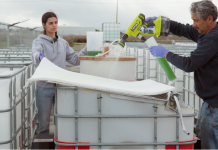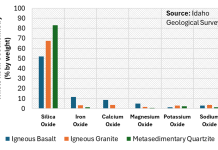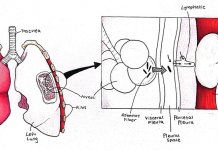Open Access Government produces compelling and informative news, publications, eBooks, and academic research articles for the public and private sector looking at health, diseases & conditions, workplace, research & innovation, digital transformation, government policy, environment, agriculture, energy, transport and more.
Home 2025
Archives
The journey of high-temperature superconductors: From discovery to today
John H. Miller, Jr., Professor of Physics at the University of Houston, discusses progress in high-temperature superconductors and its applications.
Living with rare genetic disorders: Challenges of EPP and XLP
Kirstine Juhl Belongie discusses the impact, symptoms, and possible treatments related to EPP and XLP, two debilitating disorders that cause extreme pain following exposure to sunlight.
Developing mathematics teacher confidence through increasing understanding of mathematics
Dr. Jennifer Holm, from Wilfrid Laurier University, walks us through the importance of developing mathematics teacher confidence through increasing understanding of mathematics.
Building resilience in Canadian vineyards through grapevine selections
Jim Willwerth, Assistant Professor and Researcher at Brock University, Canada, discusses how to build resilience in Canadian vineyards through grapevine selections.
The role of host condition and environment on infection outcome
Brian P. Lazzaro from Cornell University discusses his research on the factors influencing immune response and infection outcome, drawing on powerful experimental systems, such as Drosophila melanogaster as a model host, to gain a deeper understanding of foundational biological processes.
Exposomics: A shift in biomedical research with potential to improve human health
Recent advances in exposomics offer an exciting opportunity to comprehensively catalog human exposures and link them to biological responses determining health and disease. Pamela J. Lein, Ph.D. from the University of California, tells us more.
Is civic engagement a potential path to decolonizing education?
Is civic engagement a potential path to decolonizing education? Here, Geraldine Balzer from the University of Saskatchewan provides an intriguing response.
The impact of bible use on human flourishing among U.S. Military members
The impact of Bible use on human flourishing among U.S. military members is detailed by Sung Joon Jang and Byron R. Johnson from Baylor University and Pepperdine University.
Helping biodiversity conservation with modelling
Professor Guillaume Blanchet from Université de Sherbrooke discusses how modelling can aid in the conservation of biodiversity.
Primate exposure to anthropogenic pollutants: An overlooked conservation concern
Michael Wasserman of Indiana University discusses research on wild primate exposure to endocrine disruptors, such as pesticides, flame retardants, and phytoestrogens.
Carbon capture surface: CO2 removal technology
Beth McDaniel, JD, Partner President from Reactive Surfaces Ltd. LLP, introduces us to Carbon Capture Surfaces, a CO2 removal technology that checks all the boxes.
Philosophy: Environmental risk policy and public law
John Martin Gillroy is Professor of Philosophy, Law & Public Policy at Lehigh University. Here, he navigates philosophy with a special focus on environmental risk within the realms of policy and public law.
An ancient therapy modernized for Clostridioides Difficile therapy
Clostridioides difficile is a type of bacteria that often affects people who have been taking antibiotics. Glenn S. Tillotson of GST Micro LLC explains how live biotherapeutic products have shown promise as a safe and effective treatment to help restore the normal gut microbiome.
Soil parent material: The role of earth’s skin on forest health
Soil is complex, posing challenges for measurement and management at scale. Mark Kimsey from the University of Idaho highlights the importance of monitoring soil properties in forest management. This has resulted in digital tools that help align management practices with the characteristics of soil parent material and climatic conditions.
Forensic program: Mental healthcare through songwriting
A therapeutic guitar group at the Royal Ottawa Mental Health Centre’s Integrated Forensic Program evolved from a pilot project into a unique songwriting initiative that enhances participants’ mental well-being and social connections through music therapy.
Is there an elephant in the room of research on the origins of life?
Helen Greenwood Hansma, from the University of California at Santa Barbara, questions if there is an elephant in the room of research when it comes to the origins of life.
All hands on deck for ocean-based CO2 removal research
Prof. Dr. Katja Fennel, Chair of the Department of Oceanography, Dalhousie University, Halifax, Nova Scotia, Canada, argues that we need all hands on deck for ocean-based CO2 removal research.
Revolutionizing business with sustainable strategic management
Discover how Sustainable Strategic Management empowers businesses to lead humanity’s transformation before Earth regulates our species into extinction
In an era of unprecedented global challenges,...
Targeting the most complex flipon of them all in the fight against cancers
In this article, Alan Herbert, the Founder, and President of InsideOutBio, guides us through targeting the most complex flipon of them all in the fight against cancers.
Asbestos, the pleural cavity, and autoimmune disease
Jean C. Pfau, Ph.D. from the Center for Asbestos-Related Disease and Kinta Serve from Idaho State University, provide their perspective on asbestos, the pleural cavity, and autoimmune disease.
















![Is there an elephant in the room of research on the origins of life? Figure 1: Ratios of the concentrations of Sodium ions [Na+] and Potassium ions [K+] in water on land and in the sea vs in living cells and in blood.](https://www.openaccessgovernment.org/wp-content/uploads/2024/12/Fig-1-218x150.png)




